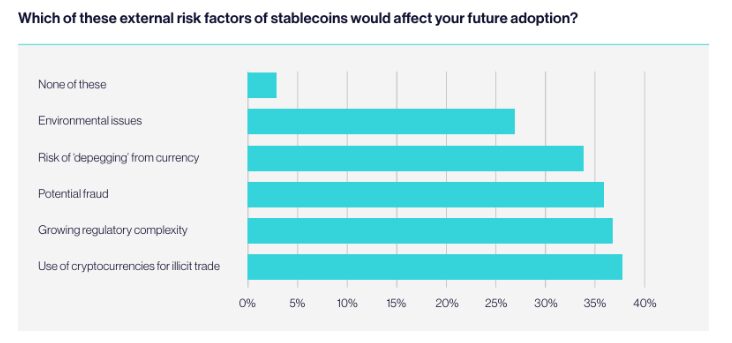Institutional Investors Shift From Speculation to Diversification: Sygnum
Institutional crypto investors are shifting their approach to digital assets, with diversification replacing speculation as the leading investment thesis, according to Sygnum’s Future Finance 2025 global institutional investor report.
The Swiss digital asset bank found that over 60% of institutional crypto investors plan to increase their crypto allocations, while just 4% plan to reduce exposure. However, bullish sentiment remains contingent on market catalysts expected in the final quarter of the year. The report, based on a late-Q3 survey of more than 1,000 institutional and professional investors across 43 countries, also concluded that for the first time, portfolio diversification (57%) had overtaken short-term return potential (53%) as the primary reason to invest in digital assets.
“We interpret the findings as evidence of crypto assets growing into a strategic, long-term asset class, with unique value drivers and risk factors,” Fabian Dori, Chief Investment Officer at Sygnum, told Decrypt.
Sygnum’s findings come at a moment of uncertainty in Q4 markets, where investors are weighing expected ETF approvals, the impact of pending U.S. market structure bills, and global fiscal instability. Late-October liquidations and delayed catalysts have dampened earlier optimism, with many investors now adopting a wait-and-see approach.
Lucas Schweiger, Sygnum’s lead crypto asset ecosystem research and the report author, noted the 2025 narrative is defined by “measured risk, pending regulatory decisions and powerful demand catalysts against a backdrop of fiscal and geopolitical pressures.”
A maturing crypto market
The report paints a picture of a maturing market where passive exposure is being replaced by discretionary mandates and actively managed strategies. Investors are diversifying across tokenized money market funds, stablecoins, and multi-asset exchange-traded products (ETPs), signaling a preference for balanced, flexible exposure. More than 70% of respondents said they would increase allocations if staking were approved for ETFs, a sign of the sector’s growing sophistication.
The report suggested growing acceptance of crypto in traditional finance. Over 80% of respondents said Bitcoin is a viable treasury reserve asset, and 70% viewed holding cash over Bitcoin as carrying a high opportunity cost over the next five years.
But regulatory uncertainty and security concerns remain key obstacles. While volatility has historically been cited as the main deterrent, this year’s respondents ranked unclear legislation and custody risks higher. Sygnum’s analysts suggest that jurisdictions with established regulatory clarity, such as Switzerland and parts of Europe following MiCA, are already benefiting from higher institutional confidence, while APAC markets lag due to tightening restrictions.
“Regulatory concerns are more visible among APAC investors, where regulation is being met with both progress and pushback, with regulators tightening restrictions that may limit exposure to the asset class,” said Dori. He added that he expects to see the situation “drastically improve over the year,” with record high inflows and an “impressive list of TradFi institutions now entering the space,” following the passage of the GENIUS Act in the U.S.
Among high-net-worth individuals (HNWIs), 91% said crypto plays a key role in long-term wealth preservation against fiat currency debasement. Interest in crypto ETFs beyond Bitcoin and Ethereum also surged, with 70% of respondents open to allocating more if staking were permitted.
With fiat currencies under increasing scrutiny and trust in traditional systems eroding, the report also noted that HNWIs are increasingly looking to Bitcoin’s scarcity and decentralization as a hedge against macroeconomic instability. As Western fiscal pressures mount, digital assets are becoming less about speculation and more about preservation.
"The trend is heavily tied to the dollar, but also to the EUR’s poor performance," Dori said. HNWIs are “predominantly focused on long-term investment horizons,” meaning that volatility is less of an issue; “even more so, when considering Bitcoin’s volatility has structurally declined over the years.” He added that Bitcoin “continues to outperform as purchasing power in the dollar declines.”
Disclaimer: The content of this article solely reflects the author's opinion and does not represent the platform in any capacity. This article is not intended to serve as a reference for making investment decisions.
You may also like
European Tech Startups Eye Stablecoins, But Risks Stall Adoption

Stellar News Today: Turbo Energy's tokenization opens up clean energy investment to everyone
- Turbo Energy partners with Taurus and Stellar to tokenize hybrid renewable energy projects, targeting the $74.43B EaaS market. - The pilot uses blockchain to fractionalize solar storage PPA debt, leveraging Stellar's low-cost infrastructure for transparent green finance. - Tokenization aims to democratize clean energy investment, with Turbo's CEO highlighting scalability and security in AI-optimized storage solutions. - The initiative aligns with sustainable development goals, driving a 12.5% premarket s
Cardano News Update: MoonBull's AI Wager—Will It Surpass Cardano and Ethereum by 2025?
- MoonBull's $590,000 presale gains traction as a 2025 crypto contender, leveraging AI features and community governance. - Cardano partners with Wirex to launch ADA-branded crypto payment cards, aiming to bridge blockchain and traditional finance. - NFT and memecoin markets show 12-11% weekly gains, while Ethereum and TRON compete with MoonBull for 2025 growth narrative. - Regulatory risks and macroeconomic pressures persist, challenging projects like JFrog and Bumble amid crypto market volatility.
Bitcoin Updates: China Challenges Validity of US $13 Billion Crypto Seizure
- China accuses U.S. of central role in 2020 LuBian $13B Bitcoin heist, alleging state-linked hacking involvement. - CVERC disputes U.S. seizure legitimacy, citing 4-year dormancy and 2024 government wallet transfers as atypical criminal behavior. - DOJ claims $13B seizure is "largest forfeiture in history," while China frames it as geopolitical strategy to undermine crypto influence. - Dispute highlights escalating U.S.-China tensions over digital asset governance and cross-border enforcement norms.
